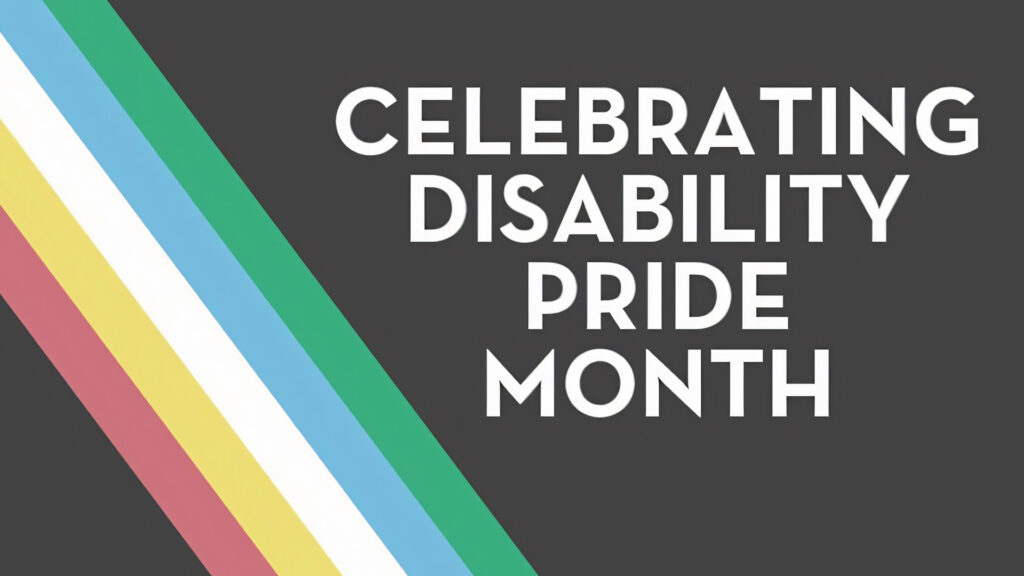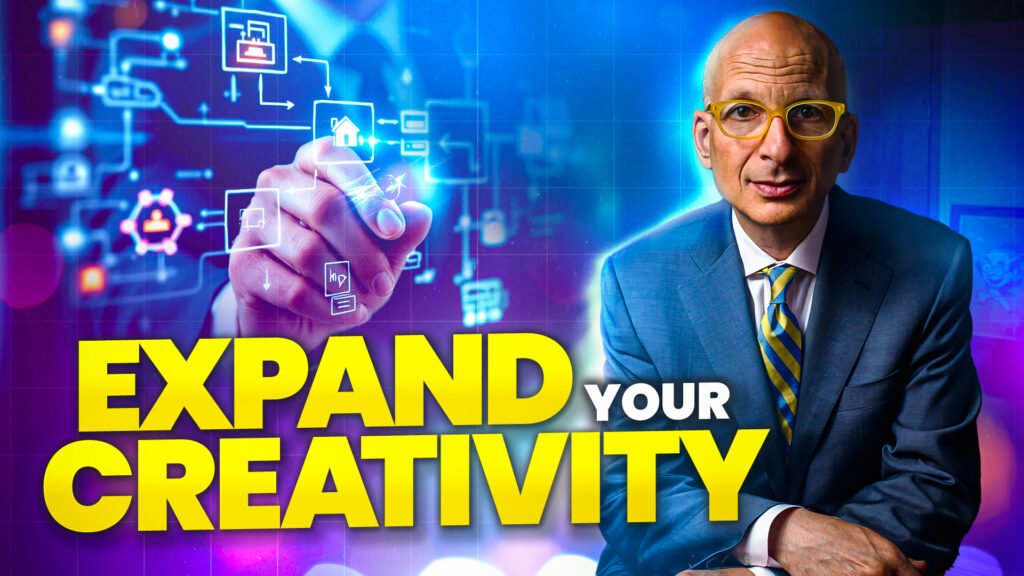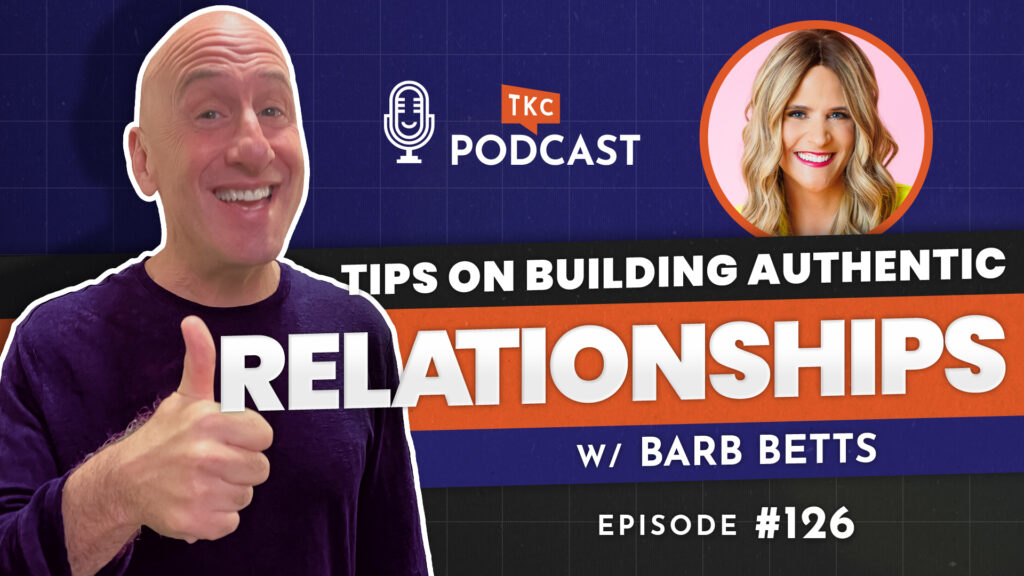- The Keynote Curators - Top Speaker Agency in North America
Dr. Gleb Tsipursky was named “Office Whisperer” by The New York Times for helping leaders overcome frustrations with hybrid work and Generative AI. He serves as the CEO of the boutique future-of-work consultancy Disaster Avoidance Experts.
Dr. Gleb wrote the first book on returning to the office and leading hybrid teams after the pandemic, a bestseller called Returning to the Office and Leading Hybrid and Remote Teams: A Manual on Benchmarking to Best Practices for Competitive Advantage (Intentional Insights, 2021). His newest book, ChatGPT for Thought Leaders and Content Creators, is an instant bestseller. Unlocking the Potential of Generative AI for Innovative and Effective Content Creation helps professionals use generative AI to create effective content for their business goals. He authored five other books and is best known for his global bestseller, Never Go With Your Gut: How Pioneering Leaders Make the Best Decisions and Avoid Business Disasters (Career Press, 2019). It’s the first book to focus on cognitive biases in business leadership and reveal how leaders can effectively overcome these dangerous judgment errors. His writing was translated into Chinese, Korean, German, Russian, Polish, Spanish, French, and other languages.
Dr. Tsipursky’s cutting-edge thought leadership was featured in over 650 published articles and over 550 interviews he gave to popular venues. These include Harvard Business Review, Fortune, USA Today, Fast Company, CBS News, Scientific American, Psychology Today, Entrepreneur, The Conversation, Business Insider, Government Executive, The Chronicle of Philanthropy, NPR, Time, Boston Globe, New York Daily News, Fox News, Inc. Magazine, Forbes, and many others.
Dr. Tsipursky’s expertise comes from over 20 years of consulting, coaching, speaking, and training for innovative startups, major nonprofits, and Fortune 500 companies, such as Aflac, Applied Materials, Entergy, Fifth Third Bank, Honda, Outreach Corporation, ProMedica, Reckitt, The Columbus Foundation, Wells Fargo, the World Wildlife Fund, Xerox, and over a hundred others who achieve outstanding client results.
His expertise also comes from his research and teaching background as a behavioral scientist studying the behavioral economics and cognitive neuroscience of future-proofing, strategic decision-making and planning, and cognitive bias risk management strategy in business and other contexts. He spent over 15 years in academia, including 7 years as a professor at the Ohio State University and before that as a Fellow and Lecturer at the University of North Carolina-Chapel Hill. His dozens of peer-reviewed academic publications have appeared in well-respected scholarly journals such as Behavior and Social Issues, Journal of Social and Political Psychology, and International Journal of Existential Psychology and Psychotherapy.
His civic service includes over four years as the Chair of the Board of Directors of Intentional Insights, an educational nonprofit advocating for research-based decision-making in all life areas. He also co-founded the Pro-Truth Pledge, a civic project to promote truthfulness and integrity for individual professionals and leaders in the same way that the Better Business Bureau is a commitment for businesses. He serves on the Editorial Board of the peer-reviewed journal Behavior and Social Issues.
A highly in-demand international speaker, Dr. Tsipursky has over two decades of professional speaking experience across North America, Europe, and Australia, in-person and virtual, and received a Virtual Speaking Certification. He gets top marks from audiences for his highly facilitative, interactive, and humor-filled speaking style and how he thoroughly customizes speeches for diverse audiences. Meeting planners describe Dr. Tsipursky as “very relatable,” “a snap to work with,” and someone who “does everything that you would want a speaker to do.” Drawing on best practices in adult learning, his programs address diverse learning styles, as attested by enthusiastic client testimonials and references. He regularly shares the stage with prominent leaders, for example, on a roundtable panel with the President of the European Commission, Ursula von der Leyen, Secretary General of the International Federation of Red Cross and Red Crescent Societies Elhadj As Sy, Chancellor of Austria Brigitte Bierlein, CEO of Penguin Random House Markus Dohle, and billionaire philanthropist and Chair of the Bertelsmann Management Company Liz Mohn.
Gleb earned his PhD in the History of Behavioral Science at the University of North Carolina at Chapel Hill in 2011, his M.A. at Harvard University in 2004, and his B.A. at New York University in 2002.
A proud Ukrainian American, Dr. Gleb lives in Columbus, Ohio (Go Bucks!). In his free time, he spends abundant quality time with his wife to avoid his personal life becoming a disaster.
In this insightful and engaging presentation, you will learn how to transform the frustrations of adopting generative AI into a flourishing, innovative culture by mastering the psychological and cognitive aspects of change. The talk will emphasize the importance of understanding and addressing the psychological discomforts and cognitive biases that employees may face during the transition to generative AI. It will highlight key techniques, including fostering a learning culture that promotes continuous development and adaptation. You will discover methods to gain employee engagement and buy-in by involving them in the AI adoption process and addressing their concerns transparently. The presentation will also cover strategies to enhance autonomy, allowing employees to experiment and innovate using generative AI tools. By leveraging principles from behavioral science and change management, you will learn how to create a supportive environment that encourages openness, adaptability, and collaboration. Through real-world examples and case studies, you will see how leading organizations have successfully navigated these challenges and transformed their work environments. Attendees will leave with actionable insights and tools to foster a culture of flourishing through the effective adoption of generative AI.
In this compelling and thought-provoking presentation, you will explore the intricate challenges of implementing generative AI in organizations, with a strong emphasis on the human factors of psychological barriers and resistance to change. You will learn about the underlying fears, biases, and uncertainties that can hinder adoption and how to address them effectively. The talk will highlight how cognitive biases, such as the status quo bias, empathy gap, and functional fixedness play a significant role in resistance to generative AI. By leveraging principles from behavioral science, you will discover strategies to facilitate a smoother transition, fostering acceptance and integration of generative AI within teams and organizations. Through a blend of theoretical insights and practical examples, you will understand how to build a supportive environment that encourages openness, learning, and collaboration. Real-world case studies will illustrate how successful organizations have navigated these challenges, providing you with actionable tactics to apply in your context. Attendees will leave equipped with a deep understanding of the human factors and cognitive biases influencing AI adoption and practical tools to drive positive change and innovation in their organizations.
In this engaging and interactive presentation, you will delve into groundbreaking strategies that enhance innovation in distributed environments - whether in different offices or WFH. The talk introduces virtual asynchronous brainstorming, leveraging advanced digital tools to facilitate a wide array of ideas from diverse teams across different time zones, optimizing both individual ideation and collaborative synthesis. The session will cover both synchronous and asynchronous brainstorming approaches. In synchronous sessions, brief individual ideation phases enrich the collaborative process, while asynchronous setups maintain momentum through clear, structured deadlines. This dual approach fosters a broad spectrum of perspectives, enhancing the creative output of teams. Moreover, the presentation will explore the transformative role of generative AI in creativity and innovation, whether for solo contributors or teams, in different offices or working in a remote modality. These technologies not only broaden the scope of idea generation with data-driven insights but also foster a culture of creativity that transcends physical boundaries. Through real-world case studies, this talk will demonstrate how AI technologies can revolutionize idea generation processes, boosting productivity, enhancing communication, and cultivating a robust collaborative culture. Attendees will leave equipped with actionable strategies to navigate the challenges and opportunities of the future of work, transforming traditional work models, and fostering a more connected, innovative, and productive workplace.
In this engaging, interactive, and entertaining presentation, you will dramatically improve your ability to navigate through the maze of headaches, frustrations, and conflicts associated with hybrid and remote work. This session offers an enlightening journey into the heart of solving these challenges, whether the tug of war about how often to come to the office, the intricate juggling of team dynamics, the communication barriers that arise in hybrid and remote work, and many other issues. You will learn a series of actionable strategies aimed at enhancing the flow of communication, boosting overall productivity, and fostering a robust culture of collaboration, including by relying on cutting-edge tools such as Generative AI. For instance, we will explore how nuanced communication can mitigate misunderstandings and build trust among team members scattered across different time zones. We'll delve into productivity-enhancing techniques that respect individual work styles and preferences while aligning with team and organizational goals. Furthermore, the talk will highlight the importance of cultivating a collaborative culture that transcends physical boundaries, ensuring that every team member feels valued, heard, and integral to the collective success. Attending the talk offers you an opportunity to arm yourself with knowledge and tools based on real-world case studies from the presenter’s experience guiding dozens of organizations in defining their hybrid work models. This presentation will not only address the immediate pain points of hybrid and remote work setups, but will also equip you for the evolving future of work, transforming every headache and frustration into a stepping stone towards a more connected, productive, and harmonious work life.
In today’s dynamic work environment, fostering employee engagement is paramount for organizational success. As companies navigate the transition from remote to office-centric work models, understanding the spectrum of employee engagement becomes a critical aspect. This talk delves into innovative strategies to maximize employee engagement by recognizing and addressing the diverse needs and expectations of your team. We'll explore actionable insights into nurturing a supportive and inclusive work culture, harnessing the potential of hybrid work models, and leveraging data-driven approaches to boost productivity and job satisfaction. By cultivating an environment where employees thrive as stars, leaders can significantly enhance organizational performance and retention, ensuring a robust and resilient workforce ready to meet the challenges of the modern workplace.
In this engaging, interactive, and entertaining presentation, you will dramatically improve your ability to use hybrid work as an instrument to improve retention and productivity while cutting costs. Many leaders rely on traditional office-centric collaboration and leadership styles in managing hybrid teams. Yet research conclusively demonstrates that, instead of incrementally improving on the old-school office-centric approach, the best outcomes in managing hybrid teams come from adopting a flexible hybrid-first work model. Doing so results in much higher retention and productivity, reduces costs, and boosts engagement, innovation, collaboration, and risk mitigation. A hybrid-first team-led model involves best practices adapted specifically to hybrid work contexts. Such best practices include virtual coworking, weekly performance evaluations, addressing proximity bias, and a culture of "Excellence from Anywhere," all of which have been shown to be highly effective in real-world practical settings. Through adopting these best practices based on this training, you will empower yourself and your team to maximize retention, productivity, and cost savings in our increasingly-disrupted future of work.
In this engaging, interactive, and entertaining presentation, you will dramatically improve your ability to defeat the four biggest problems associated with the mandated return to office: employee resistance, attrition, quiet quitting, and diversity, equity, and inclusion. After announcing a return to the office, many leaders feel surprised at the extent of the first horseman: resistance. Such resistance may involve public criticism and complaints, as well as refusals to come in at all or for the mandated hours. Mid-level managers often refuse to hold their staff accountable and enforce a mandated return to office. The second horseman faced by leaders is attrition. That includes a small number of people quitting on the spot, but many starting to look actively for a new job once they find out about the return to office. The third horseman is quiet quitting, meaning staff disengaging and doing the minimum necessary to not get in trouble. Finally, the fourth horseman is a serious blow to diversity, equity, and inclusion. Underrepresented groups – blacks, LGBTQ, parents, women, people with disabilities – tend to have a much stronger preference for remote work. They quit in much higher numbers than white males over mandated returns to office. In my consulting for 21 companies in returning to the office, I developed a number of best practices to address each of these four horsemen effectively, as well as clear metrics to measure the success of your return to office. This training offers case studies and best practices based on my experience, and by adopting the methods from this training, your team will excel at measuring and minimizing resistance, attrition, and quiet quitting, while protecting diversity, equity, and inclusion.
In this engaging, interactive, and entertaining presentation, you will dramatically improve your ability to become a hybrid work leader using evidence-based cognitive science techniques. Many leaders rely on traditional office-centric collaboration and management styles in managing hybrid teams. Yet research conclusively demonstrates that, instead of incrementally improving on the old-school office-centric approach, the best outcomes in managing hybrid teams comes from adopting a flexible hybrid-first work model. Doing so results in much higher retention, productivity, engagement, innovation, collaboration, cost savings, re-energized company culture, and risk mitigation. A hybrid-first model involves best practices adapted specifically to hybrid work contexts. Such best practices include asynchronous brainstorming, remote coworking, virtual water coolers, weekly performance evaluations, addressing proximity bias, and a culture of "Excellence from Anywhere." This training offers case studies and best practices that you need to most effectively manage hybrid staff to help you become a hybrid leader in our increasingly-disrupted future of work.
In this engaging, interactive, and entertaining presentation, you will dramatically improve your ability to defeat work-from-home (WFH) burnout and Zoom fatigue in the context of COVID and the post-COVID recovery. Unfortunately, the vast majority of efforts to address WFH burnout treat the symptoms without getting at the root causes. These root causes stem from how organizations transitioned to WFH abruptly due to pandemic lockdowns, without adequately preparing their organizational structure, culture, systems, policies, and people for this shift. Organizations adapted our existing ways of interacting in “office culture” to remote work. Unfortunately, using office-style culture to conduct virtual work is simply forcing a square peg into a round hole. You can do it if you push hard enough, but you’ll break off the corners, in this case meaning the social and emotional glue that comes naturally from our in-office interactions. These in-office interactions bond employees into a company culture and provide a sense of fulfillment, connection, and meaning, all of which protects against burnout, according to cognitive neuroscience and behavioral economics. Organizations tried to address this challenge through transposing in-person work events into virtual formats, whether weekly meetings or happy hours. Yet research shows that our emotions don’t process these interactions as truly connecting us on a human-to-human gut level, leading to a feeling of drain, exhaustion, and stress – what we call “Zoom fatigue.” Instead, what organizations need to do is strategically re-evaluate their internal culture, norms, and policies, and recreate new ways of interacting well-suited to a much more virtual environment. This presentation combines case studies, best practices, and groundbreaking research on WFH burnout and Zoom fatigue, to give you and your team the most critical skills and take-aways to needed to defeat these problems.
In this engaging, interactive, and entertaining presentation, you will dramatically improve your skills in leading change management by addressing people’s fears about change and inspiring them to follow you to your vision of a brighter future. To do so, the presentation uses groundbreaking research in cognitive neuroscience and behavioral economics to help you gain abilities in the cutting-edge field of social intelligence. Social intelligence is the strategic capacity to evaluate and influence other people’s emotions and relationships. With our world growing increasingly disrupted and interconnected, you know how critical it is for you to empower others to overcome resistance to change. Such resistance represents a basic part of human psychology due to fears of uncertainty and loss of stability that come with any significant shifts. Social intelligence enables you to overcome these fears and inspire positive emotions about your vision of the future, through critical skills that include cultivating valuable relationships, engaging stakeholders, empathetic listening, curious questioning, improving teamwork, mediating and resolving conflicts, reframing, exhibiting leadership presence, and motivating your organization’s employees to achieving your change objectives. Pioneering change management leaders at the forefront of innovation are increasingly integrating social intelligence-based strategies into their change management toolkit to help address fears about change and inspire others to follow them to their vision of a brighter future. This presentation will offer you case studies and best practices from these innovative change management leaders, combined with groundbreaking research in social intelligence, to give you the most critical skills and take-aways that you need to lead change management effectively.
In this engaging, interactive, and entertaining presentation, you will dramatically improve your communication skills through emotional and social intelligence. Emotional intelligence, which refers to skills in understanding and managing your emotions, is critical for communicating effectively. When facing stressful communication situations that cause you to experience anger, worry, frustration and similar negative feelings, it’s vital to be aware when your emotions are driving you to say the wrong thing or misinterpret others, which leads to communication disasters. To convey your message to others effectively, you will also need top-notch skills in social intelligence, which refers to the strategic capacity to evaluate and influence other people’s emotions and relationships. Social intelligence skills – including empathetic listening, echoing and mirroring, curious questioning, reframing, conflict mediation and resolution, cultivating valuable relationships, stakeholder engagement, and motivating others – will give you the tools to ensure that others pay attention to your messages. Pioneering communicators at the forefront of innovation are increasingly integrating emotional and social intelligence abilities into their communication toolkit. This presentation will offer you case studies and best practices from such innovative communicators, combined with groundbreaking research in emotional and social intelligence, to give you the most critical skills and take-aways that you need to be a truly effective communicator.

Celebrate Disability Pride Month by harnessing resilience, inclusive storytelling, and actionable frameworks to redefine possibility and inspire transformation.
Read More
Learn from marketing provocateur Seth Godin why true creativity demands risk-taking, failed experiments, and new systems to drive innovation.
Read More
Why These Voices Matter Right Now Why are sustainability and climate change speakers so important right now? Well, picture this: you're sitting at an event, sipping your coffee, when someone steps on stage and starts...
Read More
Discover Barb Betts’ proven frameworks for turning transactions into trust, loyalty, and driving business growth through authentic relationships.
Read More
Discover how to reignite your planning and build unstoppable momentum for the rest of 2025 with proven strategies, expert insights, and actionable steps.
Read More
Learn how saying “no” and setting up boundaries can free hours each week, boost focus, and transform your work culture with leadership expert Lisa Bodell.
Read More